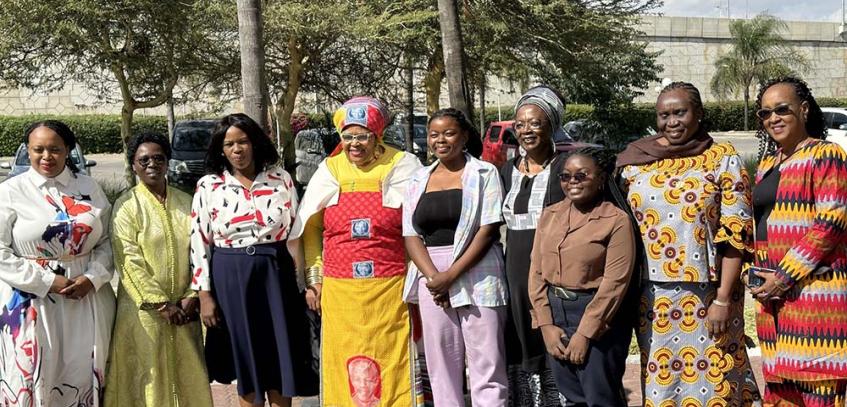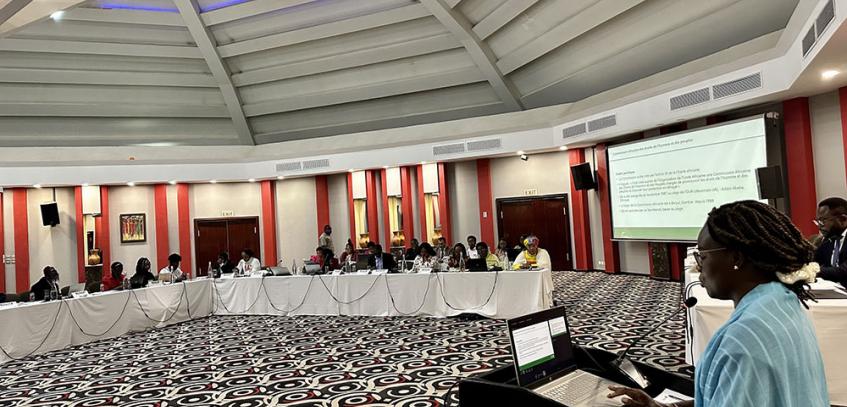Civil Society Organizations gathered in Lusaka for a three-day consultation with the Pan-African Parliament’s Committee on Gender have called for a progress report from African Union member states on the implementation of existing laws, designed to close the gap of gender inequality. Participants have further enquired about the status of the domestication of the Maputo Protocol.
Citing a lack of political will, African citizens from the Southern African region have called on the Pan-African Parliament, as the people’s representative, to play its oversight role to ensure that African Union member states are committed to gender equality. Members of Civil Society sought accountability for the current national, regional, and continental policies before new laws are formulated.
The Pan-African Parliament is currently engaging Civil Society for views on the policy framework of the proposed Model Law on Gender Equality and the draft Model Law itself. The process further seeks to identify the deficiencies in the Maputo Protocol and propose measures to address them in a model law. The presentation by Mr. Clement Mavungu, Legal Officer at the Pan-African Parliament on the Formulation of an African Model Law on Gender Equality and Equity: Theoretical Aspects and Roadmap; and the presentation by Ms. Estelle Nkounkou, Legal Officer at the African Commission on Human and Peoples’ Rights on Gender Equality in Domestic Legislations and Policy Practice: Challenges and Prospects, provided key insights into the benefits of a Model Law on gender equality.
The presentations also highlighted some of the challenges encountered in getting countries to fulfill their reporting commitments regarding the Maputo Protocol. Pursuant to article 62 of the African Charter on Human and Peoples' Rights and article 26(1) of the Protocol to the African Charter on Human and Peoples' Rights on the Rights of Women in Africa (Maputo Protocol), state parties are required to provide a detailed report on the human rights situation in their respective countries to the African Commission on Human and Peoples' Rights.
The state report should be submitted every two years and should outline the steps, the progress made, and the challenges encountered in realizing the rights provided for in the African Women's Protocol. Unfortunately, several countries have failed to fulfill this reporting obligation. Reacting to these presentations, Civil Society representatives described the lack of accountability as one of the factors affecting the realization of gender equality in Africa, including the implementation of quota systems.
Mr. Kenneth Shachinda from the Centre for Young Leaders in Zambia: “The fact that some countries are failing to report on the status of the Maputo Protocol is alarming. Given the lack of political will to ratify and domesticate previous protocols, we are concerned that the Model Law under formulation could become another fruitless exercise if countries are not reporting on progress. How certain are we that this law will be considered by our states?”
Ms. Ruth Kangwa from Girls Gone Political (GGP): “While it’s encouraging to see steps taken to enact laws that promote gender equality in many countries such as Zambia, the lack of relevant ministries or relevant government departments, responsible for implementing these laws, is incomprehensible. This is why some countries are lagging in their commitment to gender equality. We cannot move forward if the groundwork is not properly done.”
Ms. Sihle Sibisi from Kwanele Foundation in South Africa:” All these policies on gender equality and the protection of women and girls against all forms of violence are good on paper. But the reality on the ground is different. We need to hold our political leaders accountable otherwise we will keep meeting and coming up with well-crafted policies that remain obsolete. We need to evaluate what’s been done so far and how effective it has been based on previous commitments as we envisage additional laws.”
The Maputo Protocol is a legally binding instrument that aims to promote and protect the rights of women in Africa, with a focus on gender equality. The Protocol recognizes that gender equality is essential for the development and well-being of society and seeks to address the inequalities and discrimination that women face in all aspects of their lives. It is thus a significant instrument for promoting and protecting gender equality in Africa.
Following a mandate from the Plenary to facilitate the formulation of a Model Law on Gender Equality, the Pan-African Parliament Permanent Committee on Gender, Family, Youth and People with Disability is engaging Civil Society from Southern Africa for three days in Lusaka, Zambia. The pilot Civil Society Engagement in Southern Africa will be followed by consultations with civil society organizations across the rest of the continent.











